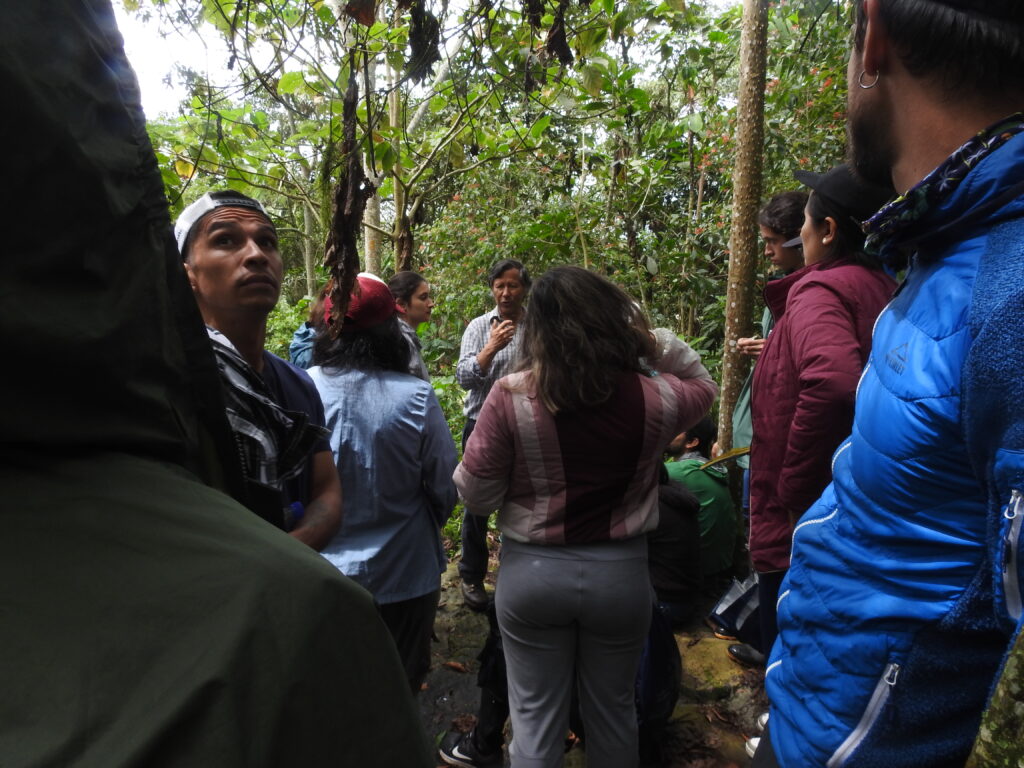Over two weeks in November (14-24), part of the DSSP coordination team visited three different campuses of the National University of Colombia (UNAL) as part of the programme’s annual meeting and expansion of activities to other regions of the country. During the first week in Bogota, the team participated in intensive meetings with the local partner, the Environmental Studies Institute (IDEA), to present and discuss each partner’s 2023 academic activities and financial reports. Two of the most important activities of this week were the presentation of the term papers of each batch of PhD students (5 batches – 10 term papers) and one workshop to analyse and update the programme’s research agenda. At the opening of this workshop, the former DSSP coordinator and IDEA professor, Dr Rosario Rojas Robles, gave an interesting overview of the recent changes in the national scenario due to the new government and its National Development Plan.



After this presentation, almost 30 researchers (Masters, PhDs and Postdocs) discussed in four groups (one for each research line) three guiding questions regarding the impact of the recent changes in the national and global scenarios applied to each topic, the main contributions of the investigations to the research agenda, and the new research questions raised by them.



This week, IDEA’s Master’s Programme in Environment and Development (PMAD) celebrated its 25th anniversary. At this event, the DSSP team was given special recognition for promoting the internationalisation of PMAD and the IDEA. The first week ended successfully with a field trip to a rural area located to the west of Bogota in the municipality of Zipacón in which we, together with students and other researchers, could visit one experience of ecological restoration of the lagoon “Laguna Verde” and part of the surrounding forest. We also had the possibility of getting to know the project “Etikaverde” which promotes the protection of the Andean cloud forest through environmental education, agroecology and strategic alliances.


The second week started in the beautiful city of Manizales, where the DSSP team (ZEF and IDEA colleagues) participated in the Internationalisation Sessions “Gender and Science in Environmental Research” on 20 and 21 November. On the first day of the event, Eva Youkhana, DSSP-ZEF Director, and Laura Calderon, DSSP-IDEA Academic Coordinator, presented the experience of academic cooperation in the programme and the main lessons and challenges of the last 5 years of joint work. In addition, Carolina Tobon, (DSSP ZEF) presented the DSSP projects related to participatory environmental monitoring (ColPaMon and ASA programme). On the second day, Dennis Avilés (DSSP ZEF) presented “The inclusion of the feminist perspective in development studies”, which was also an explanation of how the feminist perspective has been included in the DSSP. During the last session of the second and final day, Christian Petersheim (DSSP ZEF) gave an overview of the cooperation programmes developed in ZEF with different partners in Africa (Ghanaian-German Center for Development Studies (GGCDS) and the West African Center for Sustainable Rural Transformation (WAC-SRT).


After an interesting and enriching exchange in Manizales, the DSSP team travelled to the north of the country, to the city of Valledupar, to visit the UNAL campus La Paz, the university’s newest campus. This campus has adopted a transdisciplinary and practice-oriented educational approach that promotes inter- and transdisciplinary collaboration and co-learning between students from different disciplines, which is in line with the approach promoted by our programme in its research agenda. Two days of meetings and discussions allowed us to get to know the areas of work on this campus, the main common research topics with the DSSP and also ideas for future collaboration. At the end of this week, our DSSP team met with some professors from this campus and colleagues from the WAC-SRT (from ZEF and the University of Development Studies (UDS) in Ghana) to plan the next steps in the South-South-North collaboration during 2024.


